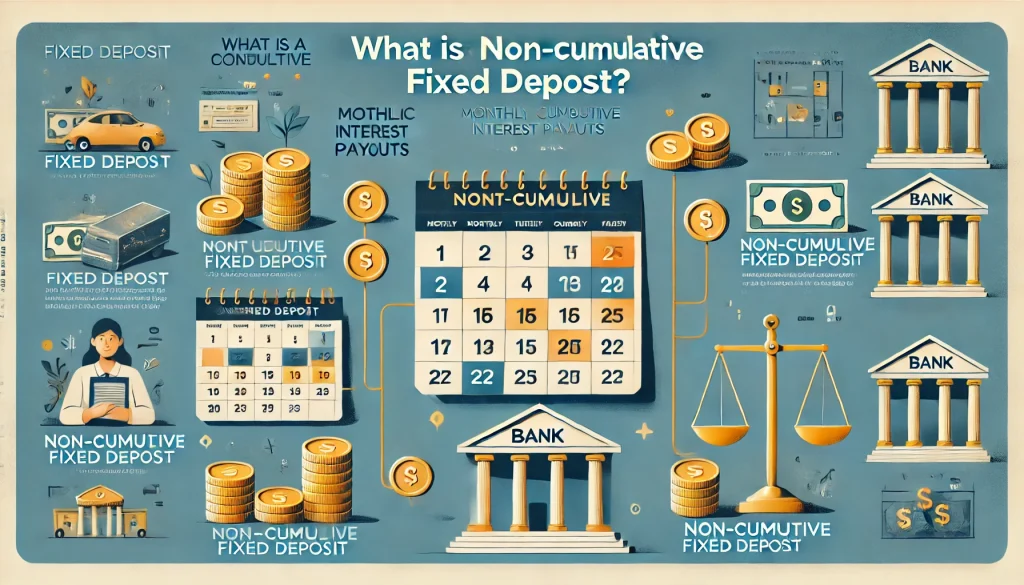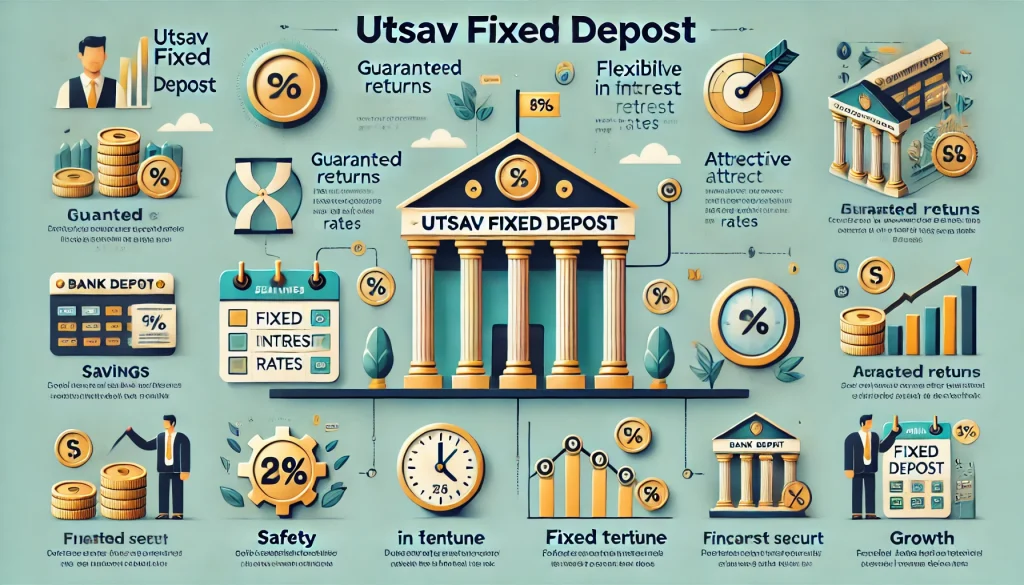
When it comes to investing your hard-earned money, Fixed Deposits (FDs) have long been a preferred choice for investors seeking stable returns. Post Office Fixed Deposit (FD) and Bank Fixed Deposit (FD) are two popular investment options for individuals looking to earn a fixed return on their savings. Both FDs have their own features and benefits, and choosing between them depends on individual preferences and financial goals. In this comparison, we’ll focus on the difference between Post Office FD vs Bank FD.
Post Office FD vs Bank FD
Both offer a secure and reliable way to grow your savings, having their own features and advantages. Let’s dive into the detailed analysis to help you decide on the best option for your financial needs.
| Criteria | Post Office FD | Bank FD |
|---|---|---|
| Issuer | Government of India | Banks |
| Interest Rates | Typically higher | Varies among banks |
| Eligibility | Open to all Indian residents | Open to all Indian residents |
| Safety and Security | Sovereign Guarantee | Insured up to Rs. 5 Lakhs by DICGC |
| Tenure | 1, 2, 3, or 5 years | Flexible tenure options |
| Interest Payment Frequency | Quarterly | Quarterly or Monthly |
| Tax Benefits | Taxable | Taxable |
| Premature Withdrawal | Allowed with penalty | Allowed with penalty |
| Loan Against FD | Not available | Available in some banks |
| Minimum Deposit Amount | Rs. 1,000/- | Varies among banks |
| Interest Rate Fluctuations | Stable | Subject to market fluctuations |
Post Office FD: A Closer Look
The Government of India issues Post Office FDs, which offer competitive interest rates, making them an attractive option for risk-averse investors. They come with a sovereign guarantee, ensuring the safety of your investment. The tenure options of 1, 2, 3, or 5 years provide flexibility in choosing the right investment duration based on your financial goals.
Interest on Post Office FDs is compounded quarterly and paid out quarterly, providing a regular income stream. While the interest earned is taxable, they do not offer any tax benefits. Premature withdrawal is allowed with a penalty, and the minimum deposit amount is Rs. 1,000, making it accessible to a wide range of investors.
Post Office FDs also offer nomination facilities, ensuring your investment is passed on to your chosen nominee in case of unfortunate events. However, they do not allow availing loans against the FD amount.
Bank FD: A Deeper Insight
Bank FDs, offered by various banks in the country, provide a diverse range of interest rates, allowing you to choose the bank offering the best rates. The Deposit Insurance and Credit Guarantee Corporation (DICGC) insures bank deposits up to Rs. 5 Lakhs, providing additional safety.
Unlike Post Office FDs, bank FDs offer flexible tenure options, ranging from a few days to several years, catering to both short-term and long-term investment objectives. The interest payout frequency can be quarterly or monthly, offering a choice based on your financial requirements.
Taxation on bank FDs is similar to Post Office FDs, making the interest earned taxable. Premature withdrawal is usually allowed, with a penalty charged by the bank. Additionally, some banks offer loan facilities against FDs, providing liquidity in times of need.
Bank FDs often come with additional benefits, such as special schemes for senior citizens or employees, making them appealing to specific demographics. They are also widely accessible across India, making it convenient to open an account.
FAQs
Yes, the interest earned from both types of FDs is taxable. However, investments in Post Office FDs are eligible for tax deductions under Section 80C of the Income Tax Act, subject to a maximum of Rs. 1.5 lakh.
Yes, premature withdrawal of Post Office FD is possible, but it may attract a penalty. The exact penalty amount varies depending on the tenure and the time left for maturity.
Yes, premature withdrawal of Post Office FD is possible, but it may attract a penalty. The exact penalty amount varies depending on the tenure and the time left for maturity.
Yes, most banks offer loans against FDs. You can avail of a loan against your Bank FD, providing liquidity without prematurely breaking the deposit.
Unlike Bank FDs, Post Office FDs do not offer higher interest rates specifically for senior citizens. The interest rates are the same for all investors, as determined by the government.
Disclaimer
This article is solely for educational purposes. Stable Money doesn't take any responsibility for the information or claims made in the blog.


